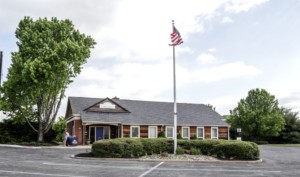More money needed for domestic violence services, NJ advocates say
 Advocates for domestic violence survivors are calling on New Jersey lawmakers to increase funding for domestic violence services, after the state’s domestic homicide rate rose to the highest it has been in the past decade.
Advocates for domestic violence survivors are calling on New Jersey lawmakers to increase funding for domestic violence services, after the state’s domestic homicide rate rose to the highest it has been in the past decade.
Officials from the New Jersey Coalition to End Domestic Violence testified last month before the New Jersey Senate Budget Committee to request a $4.8 million increase to support 31 domestic violence organizations – including Catholic Charities, Diocese of Trenton’s Providence Houses in Burlington (pictured, right) and Ocean counties. The organizations provide a wide range of domestic violence services, including emergency safe housing, crisis intervention, supportive counseling, legal representation, community education, and batterers’ intervention.
The state last year allocated $1.84 million in funding, a figure that has remained flat in recent years despite steadily increasing requests for services. That funding also is not automatically renewed annually, requiring advocates to lobby lawmakers each year for it.
Opposition by gun lobbyists
Providers also typically receive funding through the Violence Against Women Act. But renewal of that federal legislation, first enacted in 1994, has been delayed this year.
That’s because the National Rifle Association has fought new proposed provisions supporters say close “lethal gaps” in current law. For example, the new provisions would extend gun ownextend gun ownership restrictions to offenders convicted of misdemeanor domestic abuse or stalking (such restrictions now only apply to felony convictions), as well as dating partners. (Now, convicted batterers can be disarmed or barred from buying guns only if they are currently or were previously married to their victim, live in the same house as their victim, are the parent or guardian of their victim, or have a child with their victim.)
New Jersey Gov. Murphy (pictured, right) has until midnight June 30th to sign the state’s FY20 budget. The legislature typically considers the budget up until the final days before approving it.
Prevention key
If New Jersey lawmakers agree to increase funding, the state’s domestic violence services providers will could more effectively work to “stop these crimes before they occur” by expanding preventative measures like education, the coalition’s Executive Director Pamela Jacobs and Public Policy Director Nicole Morella testified.
“We know that the earlier we provide education, the more likely we will be able to prevent violence,” they testified.
Specifically, additional funding will enable providers to teach safe and healthy relationship skills in schools and the community and strengthen economic supports for families.
 “We’re constantly trying to balance the demands of raising money to run our programs with doing impactful preventative work,” said Mary Pettrow, associate service area director of Providence House (pictured, left). “We have to stand ready to help people who are victims, but if we are ever going to make any meaningful progress toward ending domestic violence, it’s the prevention work that we really need to focus on more.”
“We’re constantly trying to balance the demands of raising money to run our programs with doing impactful preventative work,” said Mary Pettrow, associate service area director of Providence House (pictured, left). “We have to stand ready to help people who are victims, but if we are ever going to make any meaningful progress toward ending domestic violence, it’s the prevention work that we really need to focus on more.”
Pettrow especially would like to expand education for teenagers affected by domestic violence. For example, Providence House now offers an innovative program called Peace – A Learned Solution. Known as PALS, the program provides children with creative-arts-therapy interventions designed to address the anxiety, depression, aggression, self-esteem deficits and impaired school performance that can result from exposure to violence in the home. But PALS ends at age 12. A boost in funding could help Providence House reach older children, as well as expand its educational outreach in schools, Pettrow said.
An underreported crime
About 63,000 domestic violence offenses are reported to New Jersey police each year, according to the coalition. That’s likely just a fraction of incidents that occur, though, because domestic violence is an underreported crime.
Last year, New Jersey’s domestic violence services providers served nearly 17,000 victims, answered almost 89,000 hotline calls, and gave more than 4,200 trainings and education programs to 93,600 people, according to the coalition.
Subscribe for more news
To subscribe to our blog posts and news releases, fill out the fields below.

